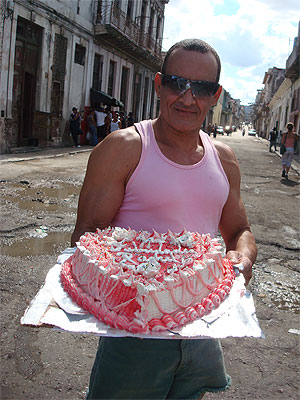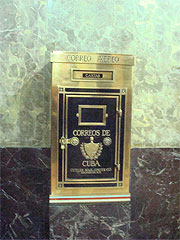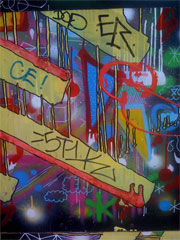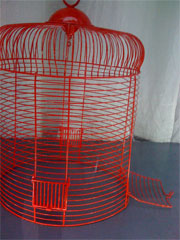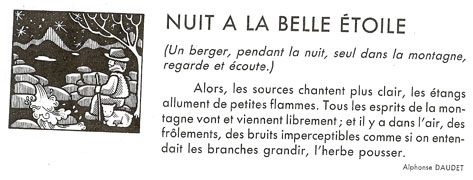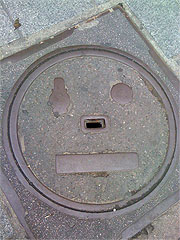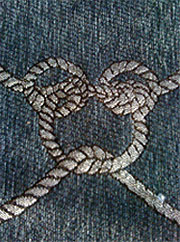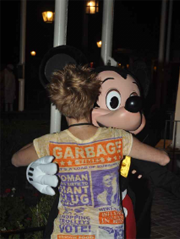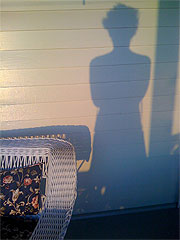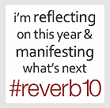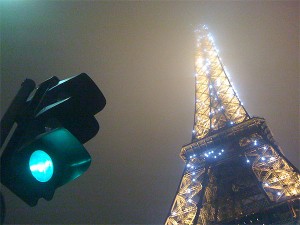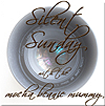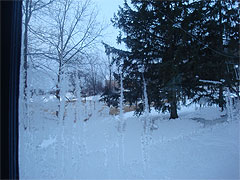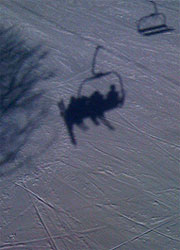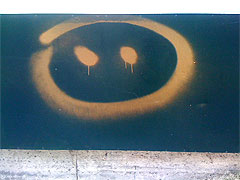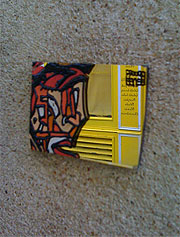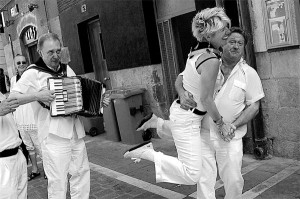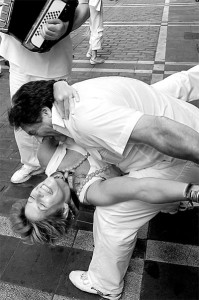Digital Rasa
I once worked in a cubicle a stone’s throw from a meticulous woman. I’d listen to her set up appointments with clients in the most deliberate way, confirming the time and place, clarifying the purpose of the meeting. Her desk was ordered, her language precise, and she lived by her day-timer.
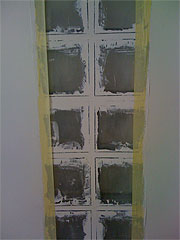
One year she tried a new calendar method: after completing each task or meeting on her to-do list, she’d erase it with white-out. I could picture her pulling the little brush out of the green plastic bottle and carefully blanking out every accomplished item. Her objective: a fully white page at the end of each day.
The problem, she confessed after doing this for an entire year, was that she had no reference about what she’d actually done. If you asked – a week or a month later – when she’d met with someone or competed something, she couldn’t tell you. She enjoyed the daily satisfaction of a clean agenda, but no institutional memory to assist anyone else.
~ ~ ~
I’ve been following an on-line conversation by Gwen Bell, an internet-mentor of sorts, one of the trio behind the whole Reverb deal. I say of sorts because I have only exchanged a few tweets with her, but even from a distance she inspires or provokes. She’s exploring how to be more intimate and authentic in her web-conduct, and as a result re-ordering her on-line priorities. In a recent subscribe-only missive she foreshadowed a digital incineration, and she’s followed through. She deleted her on-line artifacts – yesterday – starting afresh with a digital tabula-rasa. She wonders what would happen if everyone she knew did the same thing.
Given that last week I wrote about my reticence to delete my mother’s email electronic information from my computer, I’m an unlikely candidate for such a digital purge. I have dozens of boxes stored with eclectic mementos in various basements of my life and it would carry forward that the things I cherish about my on-line life – one I consider rich and nourishing – are things I want to bookmark and access with only a few clicks.
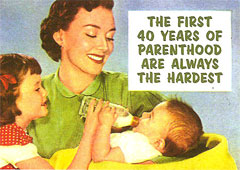
I wonder, when Short-pants and Buddy-roo are older, will they appreciate the memories assembled in this epistle, or they will be insulted, angry that their privacy has been compromised? I used to roll my eyes in embarrassment at my mother’s Christmas letter. Even though never more than a line or two was devoted to me – and her friends purported to love having the news – it was always painful to read what she had written about me. The girls could revolt with a digital mutiny; by then they’ll probably have hacked my password and could easily incinerate the stories of their youth without my permission.
There are a hundred questions I’d ask my mother, if I could. And I did, but there was much she couldn’t remember. If she’d only written it down. To have a digital archive of her feelings during my childhood would be so precious to me now. When my daughters are mothers to their own children, could it be that my archives might at least amuse them, if not offer them comfort?
~ ~ ~
In college I accumulated (just barely) enough credits to have a degree in History and in Semiotics. So the historian in me thinks it’s blasphemous to delete a rich history of published content from the web. Archives are the record of a narrative. Like the diaries of Anais Nin, an on-line journal is biased, slightly (or mightily) filtered for public consumption and maybe it tells only the part of the story, but it’s still part of the important collective herstory. There’s a feminist aspect as well: the platform of blogging has enabled more women to publish without a gatekeeper; it’s hard to imagine deleting the words that have resulted from this privilege.
The historian in me also believes that some things ought never to be deleted from our consciousness. Like the Holocaust, for instance. That’s an extreme case,  compared to the archives of one person’s website, but where do you draw the line? When you delete something, what are you saying? That it’s not important enough to be remembered in its original form? If it were published as a book, it would just go out of print. But there’d be a dusty copy somewhere, a future internet scholar could dig it up as a reference for a treatise on the evolution of social media. Can a closed archive, filed away in the cloud, be accessed by the next generation of historians and sleuths?
compared to the archives of one person’s website, but where do you draw the line? When you delete something, what are you saying? That it’s not important enough to be remembered in its original form? If it were published as a book, it would just go out of print. But there’d be a dusty copy somewhere, a future internet scholar could dig it up as a reference for a treatise on the evolution of social media. Can a closed archive, filed away in the cloud, be accessed by the next generation of historians and sleuths?
The semiotician in me, however, wants to deconstruct the discourse of this electronic medium and my attachment to my texts, starting with the word “I” which is repeated oft and means one thing to me, and an entirely different thing to a reader. “I” also means one thing now, in this current reality, and it signifies something else later, in the future, when what is now is the past.
Or does it? There are stories of an unforgiving Internet. A Google search can undermine a burgeoning career. Names like Krystal Ball and Mary Bono Mack come to mind. This New York Times article last summer got me thinking about how digital archives signal the end of forgetting:
In a recent book, “Delete: The Virtue of Forgetting in the Digital Age,” the cyberscholar Viktor Mayer-Schönberger cites…the importance of “societal forgetting.” By “erasing external memories,” he says in the book, “our society accepts that human beings evolve over time, that we have the capacity to learn from past experiences and adjust our behavior.” In traditional societies, where missteps are observed but not necessarily recorded, the limits of human memory ensure that people’s sins are eventually forgotten. By contrast, a society in which everything is recorded “will forever tether us to all our past actions, making it impossible, in practice, to escape them.” He concludes that “without some form of forgetting, forgiving becomes a difficult undertaking.”
Well yes. We ought to be given room to be young and foolish, to make mistakes and to grow into our opinions. I can think of a dozen things I said or did in college and just after (and into my thirties for that matter) that I’d rather not have to answer to now. Not because they were so horrible, but because they demonstrate questionable judgment, or the inexperience of youth. And yet, those episodes of lesser judgment were critical learning opportunities that informed the (usually) wiser me that exists now.
How can we evolve into who we are in the process of becoming if the current vehicle that records data is so very precise that it leaves nothing to the frail and vague human memory that edits selectively and makes most of our stories more interesting?
~ ~ ~
I like my current blogging practice, and I feel no compulsion to follow suit and delete any archives. But I’m interested in the conversation that Gwen 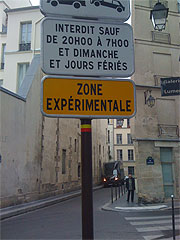 and her circle are carrying on about what’s emerging as a more authentic way of telling our stories on the web. It has to do with publishing, it has to do with connecting, it has to do with being present with (or despite) technology. They’re challenging assumptions and renaming what is new media for many but already old media to them. And the internet, which has woven its way inside us, should be challenged as we grow to rely on it more and more.
and her circle are carrying on about what’s emerging as a more authentic way of telling our stories on the web. It has to do with publishing, it has to do with connecting, it has to do with being present with (or despite) technology. They’re challenging assumptions and renaming what is new media for many but already old media to them. And the internet, which has woven its way inside us, should be challenged as we grow to rely on it more and more.
For now, the body of work that is represented in this blog – which started out as a comment on my lack of institutional memory, the losing of your mind that happens after birthing children – is an important narrative for me to keep, and to keep public. But I have a new awareness: someday I might want to put forward a different part of me, or my daughters might ask to take control of their childhood stories. Then it might seem like the right thing, to take the plunge with my own digital bottle of white out. Would I be erasing history, or taking the reigns of what is to be remembered? Or would that be letting go the reigns?
